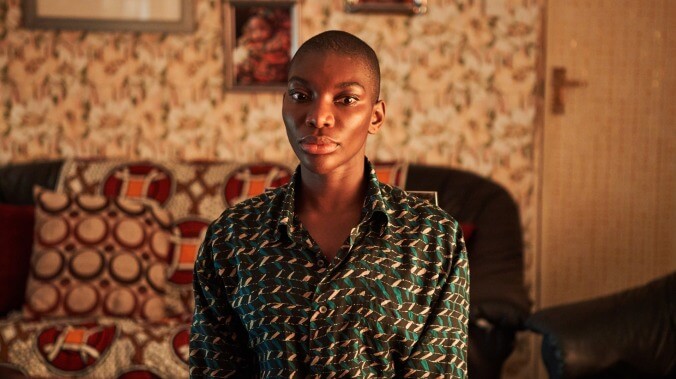Among the regular crop of snubs, omissions, and outright misses that came with this morning’s Golden Globe nominations, few were as egregious as the total absence of Michaela Coel’s I May Destroy You from every single category on display. As our TV Editor, Danette Chavez, noted in her write-up of the Hollywood Foreign Press Association’s more blatant gaffes this morning, I May Destroy You is “an unflinching, yet ultimately affirming look at sexual assault survivors,” and Coel, as its writer, producer, director, and star, was among the most powerful talents working in television in 2020.
All of which was only made just a little bit more frustrating—to the extent that one can still get frustrated by the Globes at this point, anyway—by the inclusion of two nominations on that same list for Netflix’s Emily In Paris, a show that’s been pretty heavily criticized over the last year for being woefully out of touch with the global tone. For all its brightly colored appeal—and star Lily Collins’ charisma—a show about a young, well-to-do white woman having adventures in Paris was something of a hard sell for those of us who spent the year quarantined, angry, and afraid.
Now, a somewhat surprising voice has stepped up to voice her own outrage that I May Destroy You was left off the HFPA’s list: Emily In Paris writer Deborah Copaken. In a piece published by The Guardian today, Copaken—who acknowledges that her own show is “about a white American selling luxury whiteness, in a pre-pandemic Paris scrubbed free of its vibrant African and Muslim communities”—notes how shocking it was to see I May Destroy You left out of consideration:
Now, am I excited that Emily In Paris was nominated? Yes. Of course. I’ve never been remotely close to seeing a Golden Globe statue up close, let alone being nominated for one. But that excitement is now unfortunately tempered by my rage over Coel’s snub. That I May Destroy You did not get one Golden Globe nod is not only wrong, it’s what is wrong with everything.
All in all, it’s an unusual stance for someone potentially set to be honored by an organization to take. But Copaken seems to come by her dismay honestly, noting that I May Destroy You is her “favorite show ever,” and heaping praise on Coel’s ability to layer together its story about the aftermath of a sexual assault with humor and heart. Citing the additional frustration of watching a show driven by the emotion and intellect of a Black woman creator be ignored by an ecosystem that’s still overwhelmingly white, Copaken ends her essay with a straightforward declaration of bewilderment at the HFPA’s decision: “How anyone can watch I May Destroy You and not call it a brilliant work of art or Michaela Coel a genius is beyond my capacity to understand how these decisions are made.”


 Keep scrolling for more great stories from A.V. Club.
Keep scrolling for more great stories from A.V. Club.